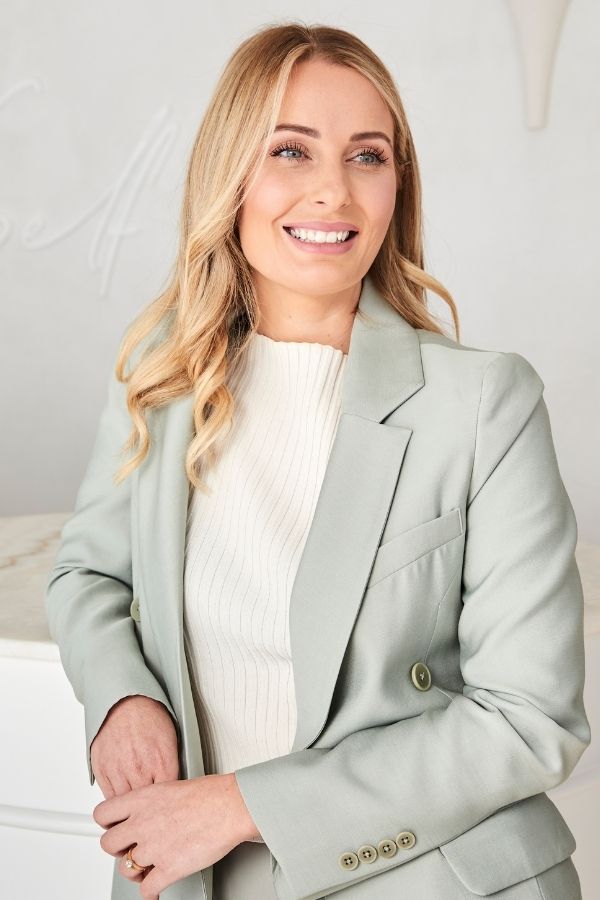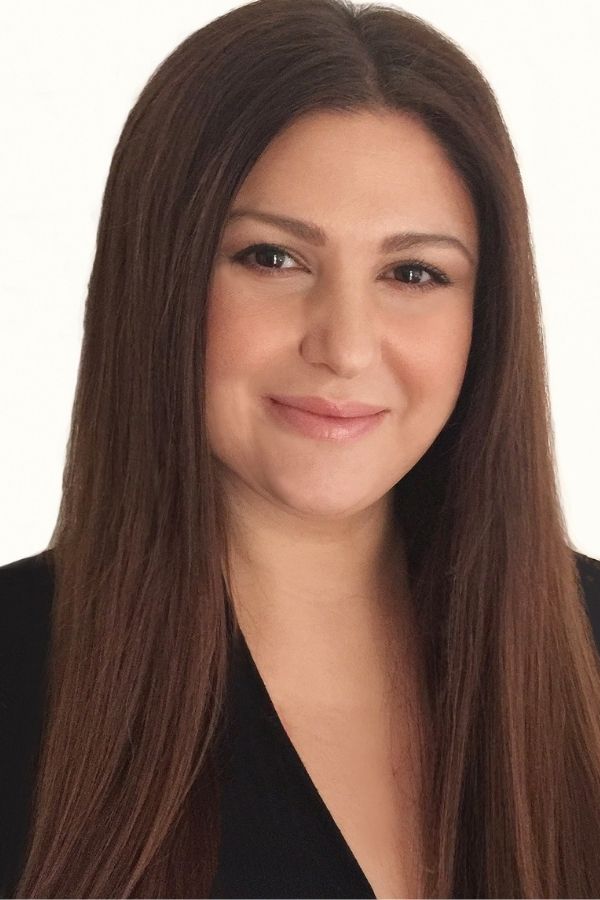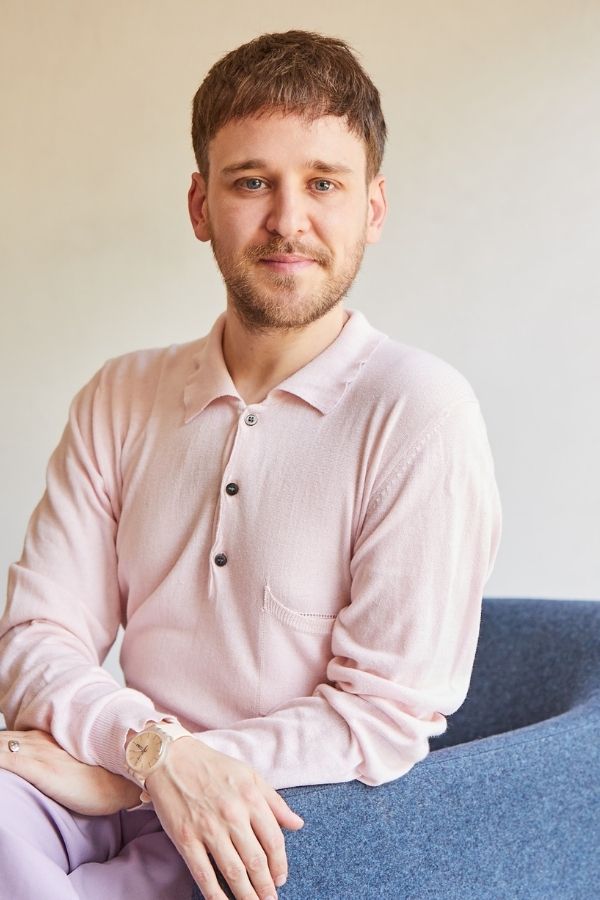Australian beauty entrepreneurs have adjusted, pivoted and evolved their businesses in response to Covid over the last two years. But Omicron is presenting new challenges. While the Australian Government has promised support for hospitality and entertainment sectors, they've left the service industry off the menu. In this feature, four Australian business owners share how they're "living with Covid."
Natalie Ferrari, Founder and Owner of the Parlour Room, Sydney

On the 6th of January, Natalie Ferrari, posted a story on The Parlour Room Instagram. The post read: “To our wonderful clients, I wanted to quickly jump on here and apologise for letting some of you down over the past couple of weeks. Especially at this time of year when I know you are looking forward to treating yourself with a TPR or SELF-experience, many of which you have pre-booked months ago. I have worked so hard over the last nine years to build up a business that can be trusted for its customer service and professionalism – it’s tough to be thrown into a situation that is out of our control.”
Over the December-January period, Natalie had to cancel 500 appointments across her two businesses. The Omicron wave, an outbreak that coincided imperfectly with Australia’s reopening, has been the cause. Due to COVID or close contact requirements, staff absence or lack of access to testing has caused the bulk of these cancellations.
As I speak to Natalie, she is close to her due date and isolated at home, worried about low staffing level on maternity wards. She says that operating a business during the Omicron wave has been harder to endure than the lockdowns. “It’s been an absolute nightmare. Out of any of the Covid situations, it’s been the hardest.” In an industry already struggling with staff shortages, Natalie says having up to eight staff out of business, sometimes for two weeks as close contacts and then cases, has made rebooking clients impossible. “We have nowhere to move clients. Some people have their wedding that weekend or something special. It’s not just the financial stress of losing the booking. It’s the emotional stress of calling people up and letting them down. At the start, people were angry and aggressive about it – after a few weeks, they realised it’s everywhere, now they’re upset, but they are accepting of it.”
One of the biggest issues for Natalie has been inconsistent communication from the government. “It’s tough because the guidelines have changed so many times – I paid three times for professional cleaners over the Christmas/New Year period because I wanted to stay open. One cleaner was booked from midnight until 3 am. I was up with them, heavily pregnant overseeing a clean. Then, they changed it to hospital-grade clean, which beauty salons do anyway! I felt like I’d paid $2400 in cleaning bills for no reason.”
As staff became close and casual contacts, Natalie struggled to find instructions. “We would be on hold for hours with NSW Health trying to get answers. I’d check with other businesses, and they all had different interpretations.” Natalie considered closing for the summer period, but she said the risk of losing clients to businesses remaining open was too high, leaving her in a bind. While Natalie is thankful for a good relationship with her landlord and an established business, she is concerned about new businesses surviving during this period and frustrated with the government: “I think if you’re going to reopen, at least be prepared. Have a website or a PDF that is updated regularly. They have had time to plan this.”
Stefanie Milla, CEO Aesthetic and Beauty Industry Council

Stefanie Milla heads the Aesthetic and Beauty Industry Council and she also owns a salon and a successful cosmeceutical range, Dermalist. Stefanie says as a member of ABIC she receives hundreds of emails from business owners and that Natalie’s situation is far from unusual.
Stefanie says: “During the lockdown period, expenses were mitigated by lockdown support, but they were also mitigated because we were closed. The expenses we needed to handle were rent negotiations, base electricity and ongoing subscriptions.” As Omicron hit, government support for small businesses was retracted, creating a perfect storm. Stefanie says that now, businesses are running at full operational cost, but with half their workforce on sick leave – “the expenses don’t drop proportionately.”
Stefanie says the lack of service continuity undermines the promise beauty businesses hinge on: trust. As a service-based industry, client trust is critical, and even in the most understandable circumstances undermining that trust feels dangerous. “When clients consider booking, they’re hesitant. They’re thinking, ‘I haven’t been able to get an appointment in a month, or they’ve rescheduled my appointment three or four times. I’m scared to spend my money in this business.’ In retail the client buys an item, and that item is theirs. Ours is an investment in service – there needs to be faith that we can deliver that service.”
Along with income from services dropping, prices on essential supplies are rising due to shortages. “There are price increases across normal medical supplies, beauty supplies and basic stock. Salon owners are reluctant to pass that increase onto the customer as confidence is already low.”
Then there is the issue of staff sick leave. Currently, if an employee catches COVID they must use their sick leave before accessing the government Coronavirus support payment. This exposes businesses to a “double whammy” where they pay out sick leave and lost income from appointments. If the employee does not have sick leave and has more than $10,000 in the bank, they are forced into unpaid leave, undermining morale, and seeing beauty therapists defecting from an industry already short on talent.
James Vivian, Founder and Owner, James Vivian, Toorak, Melbourne

James – owner of his namesake clinic James Vivian in Victoria was part of the delayed Melbourne reopening. As I talk to him, he’s recovering from COVID. He said the opening fell short of initial expectations. “I think there was an air that 2022 was going to be different, it was going to our year, and everything was going to be fine. That was probably a bit naive.”
James said that pre-reopening his clinic was booked from December through to March. But once they reopened, there was a flood of cancellations. “Everything from sickness to people realising ‘shi*t I have no money! To people realising they were not as comfortable with in-person yet as they thought they’d be.”
Vivian has managed to mitigate the business impacts of fast-moving cancellations and staff unavailability with an approach to operations that he admits is “a little obsessive.” Waitlists have been a lifesaver for his clinic during two years of unpredictability. “For us, the notion of a waitlist is crucial. It’s very detailed, and we keep track of when the clients are available. For example, they might be weekend only or have Mondays off. They might be Monday-Friday during school days only.” For Vivian’s team, when an appointment falls through, they don’t waste time contacting unavailable clients and can move quickly.
Top-notch processes don’t mean Vivian’s hasn’t felt the impacts of COVID. As we speak, he’s recuperating from the virus. He’s had five staff out with the virus over the last two weeks and has had to cancel “a lot” of appointments.
He says that while there are conversations in beauty forums about the importance of retaining revenue through booking deposits, he feels this is a high-risk strategy. “We’ve been liberal with the cancellation policy. Last year, coming out of the lockdown, we weren’t. I thought, ‘the time to be kind is over!’ but this year is different. I can’t be calling my clients last minute telling them their therapist has a sore throat and needs to be tested and then telling another client they need to pay their $50.00 deposit when they’re cancelling for similar reasons.” Because they only take $50.00 Vivian feels the loss is something he can accommodate. “Of course, some businesses take 50% of the treatment prior, but our minimum treatment is $307 so asking clients to pay the full amount ahead, when they know if they have to cancel, they won’t get it back, doesn’t sit right with me. If you can afford to be flexible, it’s a good idea. This period will pass, and clients remember those negative instances.”
James says that, for the most part, clients haven’t taken advantage of his generosity. “A client called today saying she couldn’t come in, and we asked if it was COVID-related. She said no she was just stuck at work and paid the deposit fee. Most people will do the right thing. We need to accept that cancellations will happen as an appointment-based business. I still feel lucky to be open, to have the team back – some of them are Mums and are so thrilled to be out of the house, off homeschooling duties. So a few lost appointments here and there, as a busy clinic, I can absorb it.” Like Natalie and Stephanie, though, James says he worries for smaller, newer businesses. “If we weren’t already busy and didn’t have waitlists and cancellation lists and an eCommerce side, things would be very different, so I feel for those businesses.”
Victoria Houllis, Founder and Owner, Mannequin Hands, Sydney

Victoria Houllis is founder of cult-Sydney nail destination Mannequin Hands.
As a sole operator, she has no staff to fall back on if she gets ill and with immunocompromised family members, she is particularly conscious of COVID. “For me, there isn’t any other income if I get sick, which is awful and stressful. The government hasn’t helped us with a plan or strategy for moving through this situation. Being a business owner in this environment means you’re just taking calculated risks. We have to dodge it as long as we can and help ourselves if we get into a bad situation.” The hardest decision for Victoria has been weighing the risk between lost revenue from turning away business and lost income if she becomes unwell or risks infecting family members.
In the past, if Victoria had a last-minute cancellation, she would post the spot to her Instagram stories – with demand for her services high and her books closed to new clients, appointments were snapped up. Now, Victoria is wary of filling appointments this way. “Because I don’t have a lot of availability, posting a free spot can encourage risky behaviour. If someone hasn’t been able to get in for a long time, they might say ‘yep ill take it’ even if they know they’re a close contact or haven’t been being careful and don’t have time to take a test. Some people believe that because ‘everyone’ has it, it’s inevitable and not a concern.”
“Prior to Omicron, I wouldn’t have thought twice about making sure I filled the appointment and got the cash – I’d do my admin work and other projects after hours. Now I’m using that time to make press-ons or create content. Stuff that isn’t bringing me face to face with people but make money in less direct ways.”
Despite her Commerce business and content jobs for brands, Victoria has still taken a hit financially. Over Christmas, when PCR tests were taking up to a week to come back, Victoria made the difficult decision to close shop early and reschedule appointments for the new year. “I was in a foul mood for days before I made the call. I felt the government had put us in a situation where we have to roll the dice. You have to decide, will I take the risk and possibly infect my family with COVID, or miss out on Christmas? Or do I close early, try to isolate, but also lose a bunch of money closing even earlier (Victoria had already planned 10 days off over Christmas and New Year which she had saved for).”
“It feels terrible to be placed in a situation where you have to choose between the health and safety of your family and having an income.” While Victoria doesn’t feel another lockdown would have been appropriate, she says financial support and lack of government guidance have made business owners vulnerable. “There’s no money or support in place if you choose to do the right thing.” In the last work week, Victoria has taken four rapid tests, two for a fashion shoot, one returning to work on Monday and one when she was a casual contact. These are expenses that add up. She also feels that by “letting it rip” with no restrictions in place, the government has ended up undermining businesses anyway. “Without guidance, most people are being overly cautious. They don’t want to go out, they’re doing less.” She says it doesn’t feel like a good time to spend money as a business owner. “It feels like a bad time to be investing in your business – because you don’t know what’s going to come next.”
What does the beauty industry need now?
Stefanie feels this is a dangerous time for the service industry. “During lockdown there was a light at the end of the tunnel and a way out. Now it’s difficult for businesses to plan cash flow and profit. Experienced businesses with great business models are suffering, but they’re the ones who will make it through. New businesses are struggling.”
While the government has teased support for entertainment and hospitality, the services industry is being overlooked. Stefanie attributes this to the invisibility of the Australian service industry at a government level. “Unlike hospitality, we haven’t had a cohesive industry body for 20 years.”
ABIC will be taking several requests to the government over the next few weeks.
These include allocated access to rapid antigen tests. “Our industries require in-person contact. We need access to rapid tests so staff can return to work quickly.” They will also be requesting financial assistance as staff absenteeism disrupts work. “We have asked for financial assistance for businesses that have lost 30% of their revenue due to isolation and close contact requirements. If that can’t happen, change the rules for how you pay people who are isolating.”
Stefanie Milla believes that the beauty and services industry are getting lost in the numbers. “There are retail and online businesses doing big dollars. The government is happy with itself because they’re still getting tax revenue from those big businesses. But if you leave the service industry floundering for an extended period, it’s going to suffer, and it’s going to shrink. The beauty industry is a significant employer of women and supporter of female entrepreneurs. COVID has already impacted women financially more than men. And that’s because female industries are service industries, and they’re being neglected.”
Natalie Ferrari, feels frustrated by government calls for businesses to keep calm and carry on. “This year, we will be very cautious of any future spending. The first lockdown, I opened a second salon afterwards. In the last lockdown, we were still investing. This year I’m not sure what I should be spending. If the government want people to keep growing their business and working through this, they’re going to need to give small business more security and more support.”
Get in touch with the Aesthetics & Beauty Industry Council (ABIC) here.
Read about Business NSW’s demands to the Australian government here.
Require mental health support for you or a team member? Find out more about Beyond Blue’s New Access for Small Business program.
Read the current issue of our digital magazine here:
- For more news and updates, subscribe to our weekly newsletter
- Follow us on Instagram
- Like us on Facebook
- Join Australia’s largest network of beauty industry professionals on LinkedIn
- Subscribe to our print magazine
Have an idea for a story or want to see a topic covered on our site and in our pages? Get in touch at info@professionalbeauty.com.au.

